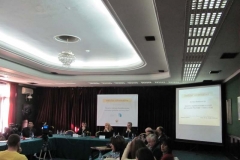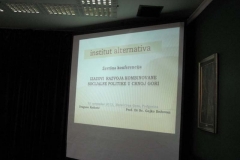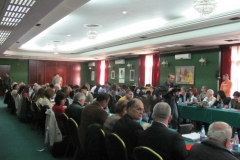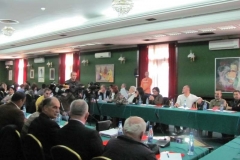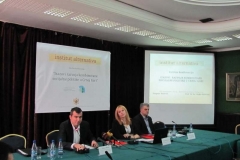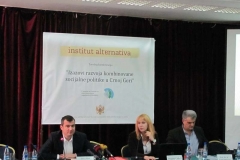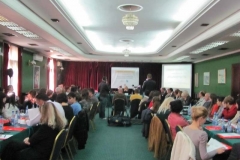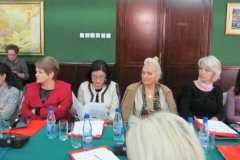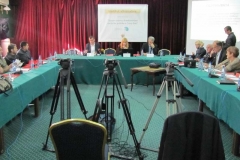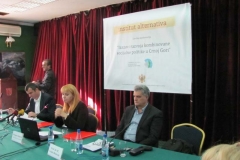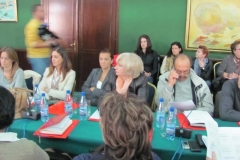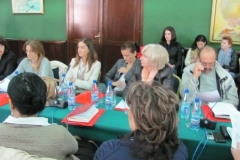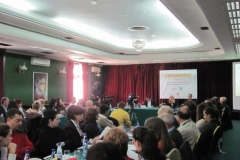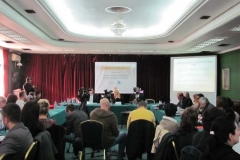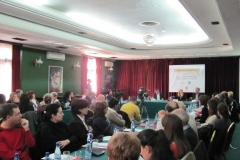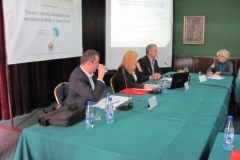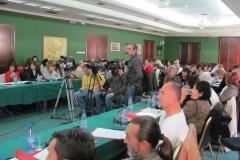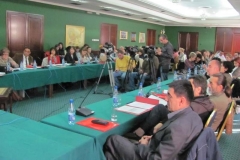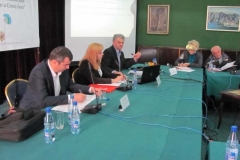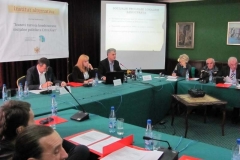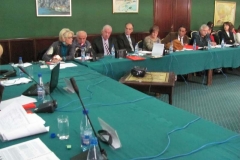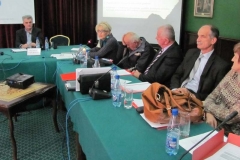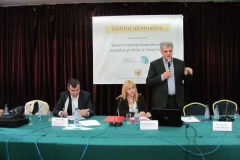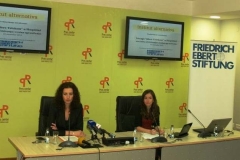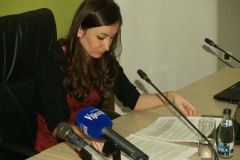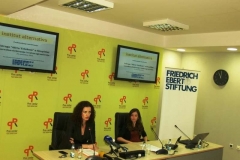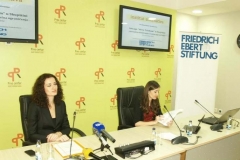Questions of the journalist of daily newspapers “Vijesti”:
- Is it possible that the Government distributes the executive posts in state-owned companies and advisers’ positions in the ministries by party quotas if the Law on Civil Service requires a fair competition?
- Can we consider discrimination the case when the candidate who meets all the criteria but has no political background enters competition?
- Does that mean that the division of power quotas directly violates the Law?
- Should we change the Law in order to avoid discrimination at the level of officials, which are mainly employed by party’s loyalty?
Jovana Marovic, Research Coordinator in Institute Alternative replies:
The current system of employment in the public administration is flawed for several reasons. First, there is a lack of human resources managing and planning, undeveloped ability check system of candidates for employment. When we add the almost unlimited discretionary powers of the head for the selection of candidates, it is clear why the employment is still highly politicized. The same situation is with the progress “on the merits” because the grading system of civil servants has never been put in practice. Nearly half of the state authorities did not conduct the assessment, and to date no employee has received an “unsatisfactory” grade. Although the state personnel is hired on the basis of a public competition, the appropriateness of testing preceding the employment is questionable, since its results are not obligatory for the head of the authority.
The new Law on Civil Servants, which was adopted in July 2011 and will enter into force in January 2013, contains good solutions for improving recruitment and promotion. Furthermore, the Law does not recognize the current post of “adviser to the head,” which is an additional mechanism to prevent nepotism.
However, the Law still leaves exceptional space for head of the authority to independently decide on a candidate, regardless of the results of the verification capabilities and qualifications of the candidates (on the ground). Such provision may be in practice a reason for the exception becomes the rule. Hence, perhaps, the so-called employment. “Party quotas” would not work in the real direction of de-politicization of public administration, and the goal of the European Commission said in reporting on progress as a priority when the Montenegrin public administration reform in question. Also, if a crucial criterion for hiring is a party affiliation, that means that the candidate with the highest ranking is not always employed. Consequently, that doesn’t not suit the need to strengthen the administrative capacities and to retain the best staff. In practice, of course, is possible that the candidates belonging to the ruling coalition receive the highest rank after the testing. However, it is particularly important that the qualifications rather than political affiliation is a crucial criterion for employment. It is therefore necessary to ensure consistent application of the new provisions of the Law on Civil Servants. Also, it is necessary to avoid the application of the discretion of the elders to decide on a candidate.
The Government must strategically approach the process of selection and retention of staff in state institutions, but also pay attention to the master plan for the reorganization of the public administration system and its realization. Preparation of Strategy for attracting and retaining the best staff in the Civil Service would be a good starting point for strengthening administrative capacity.



